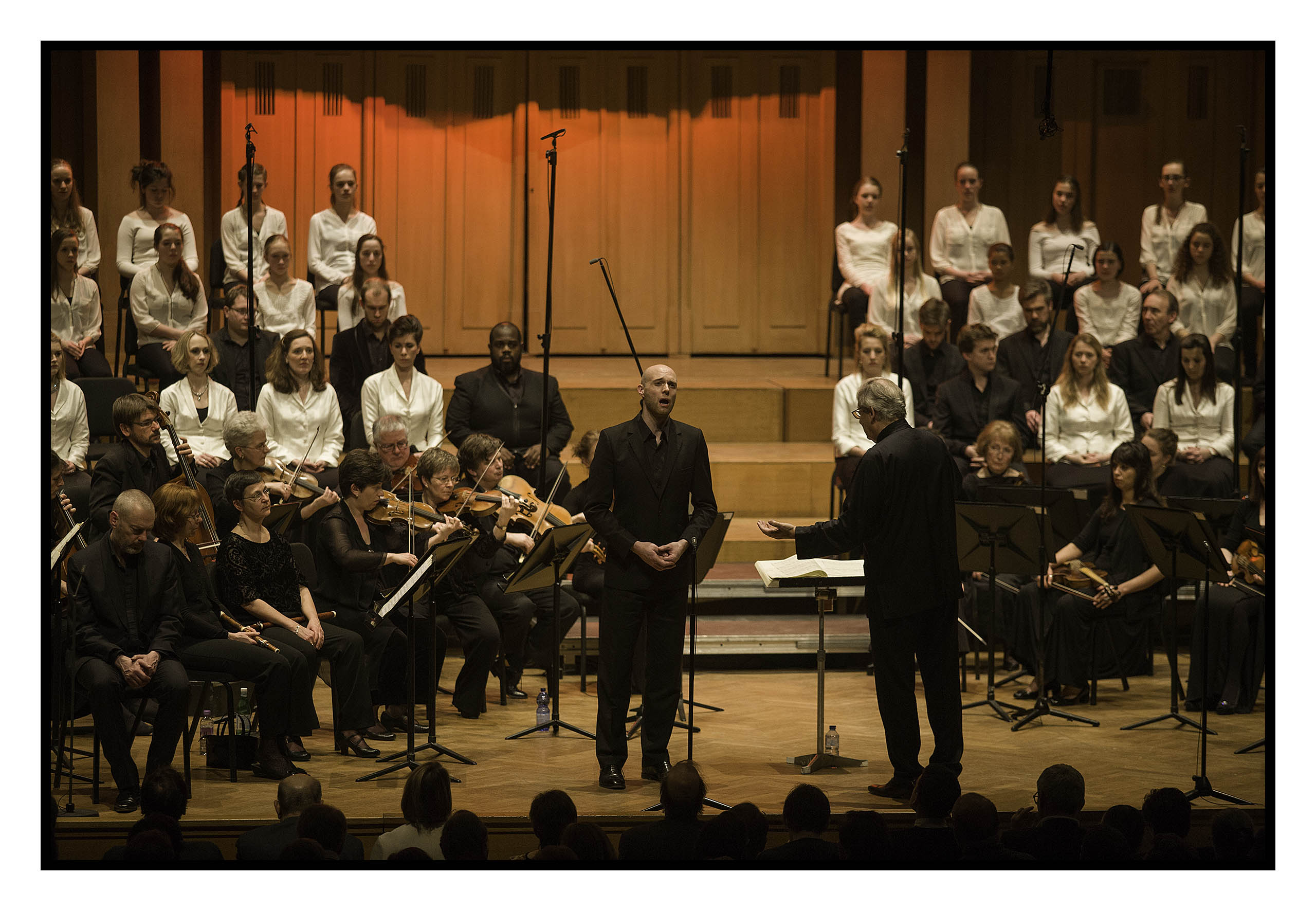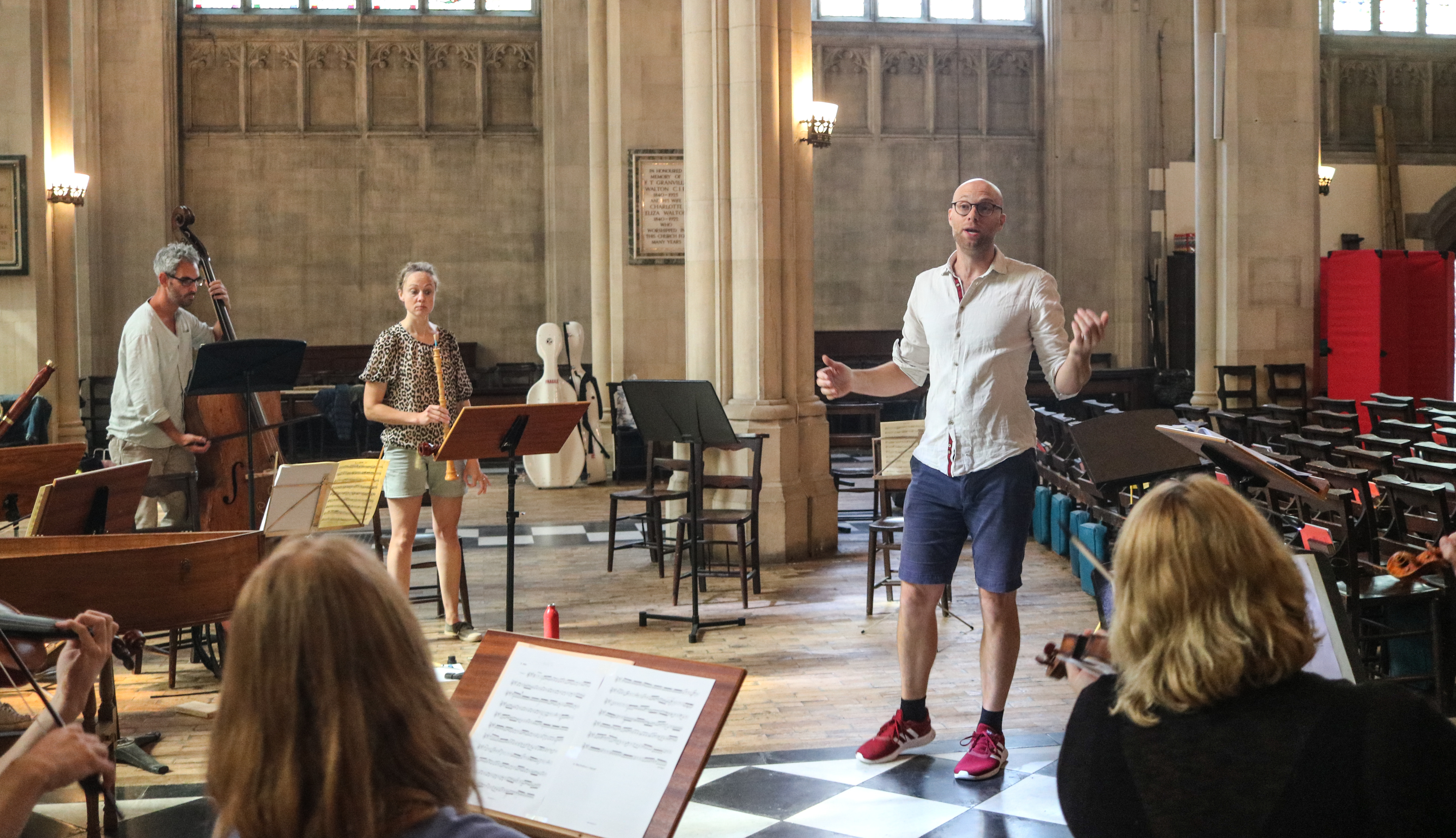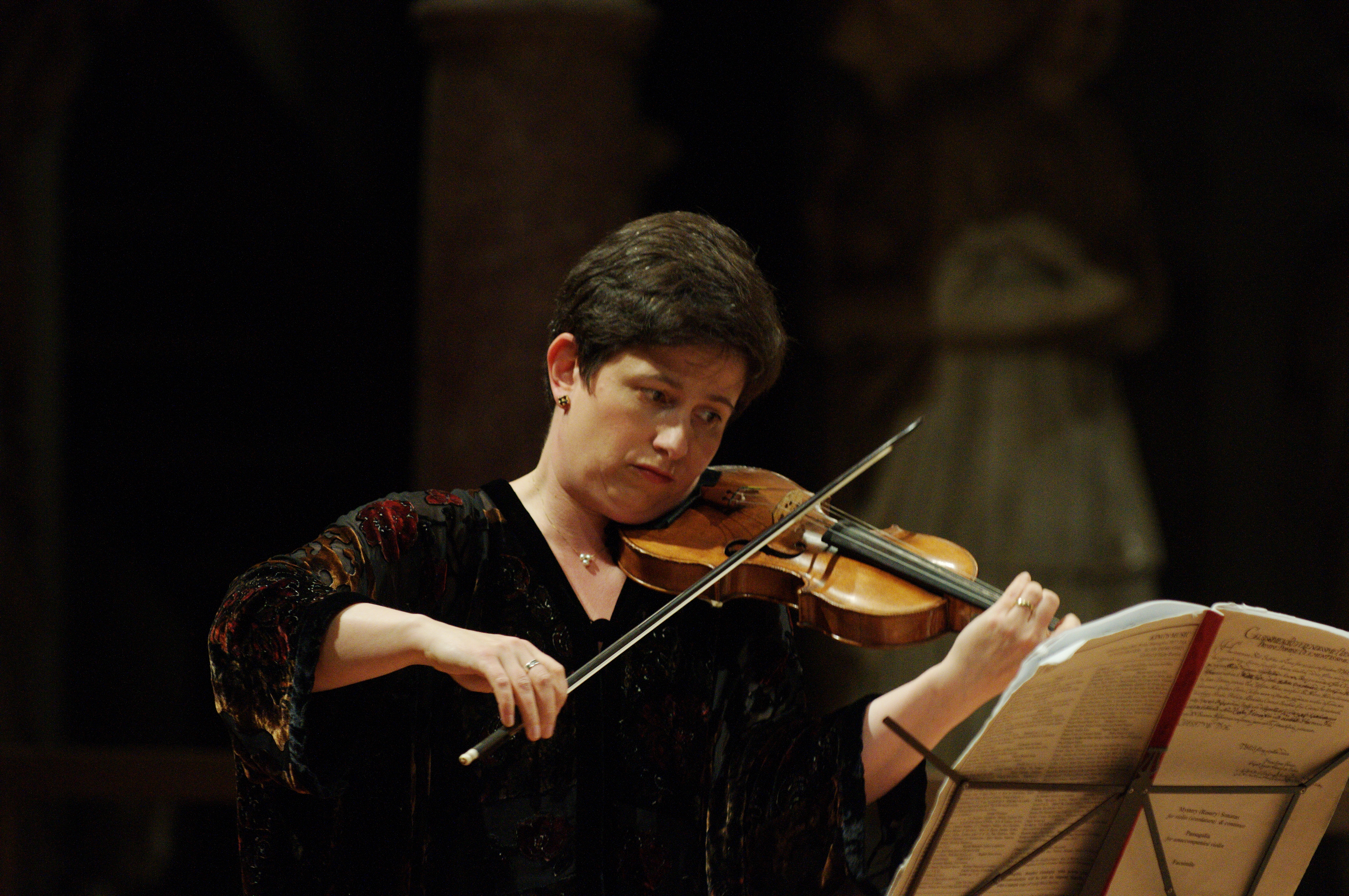9 May 2024
I’m honoured and excited to be conducting the upcoming project of Bach family motets and solo violin music with the Monteverdi Choir, English Baroque Soloists, and violinists Kati Debretzeni in London and Isabelle Faust in Leipzig.
I trained as a singer, and I’m also an artistic director and conductor. I lead the international Baroque collective Solomon’s Knot, which I founded in 2008, from the bass voice.
Singing in the Monteverdi Choir was a formative part of my early training. After studying singing at the Guildhall School and at Zurich Opera, and taking part in the ‘Jardin des Voix’ of Les Arts Florissants, John Eliot Gardiner gave me repeated opportunities as a soloist in Stravinsky, Handel, Monteverdi, and Bach: cantatas, the Mass in B minor, and the St Matthew Passion.

I was totally fascinated and inspired by the way that in the first sessions with the Choir John Eliot would be able to mould and shape the sound – in an almost alchemical way – into that definitive Monteverdi Choir identity. He drew such power, intensity, flexibility, virtuosity and a kaleidoscope of colour from the group. And for me as an artistic director, I found that hunger, that restlessness absolutely inspirational – never to settle for 'just good enough', always looking for more. On a long tour, every concert was a new challenge, everyone was pushed to their limits, further than they thought they could go.
John Eliot Gardiner recommended Solomon’s Knot to the Bachfest Leipzig in 2016, when he was president of the Bach Archiv. That marked the beginning of a close relationship which continues to this day. Leading the Monteverdi Choir in this wonderful music in Leipzig and in London is a great privilege.

The repertoire for these two concert programmes is extremely close to my heart. I have performed it – memorised – about a dozen times, and I’ve recorded the JS Bach motets and some of the JC Bach pieces with Solomon’s Knot. Even when one thinks one knows this music well, the sheer complexity and depth of JS Bach’s music – not only the immense number of notes in it, but also the depth of humanity which he plumbs time and again – is fathomless, and one can spend one’s whole life with this music and still feel that you’re learning something new every day.
So often in these funereal motets, especially in the hands of Johann Sebastian Bach, we’re presented with a baffling positivity. One thinks of the horrible circumstances in which the young boys of the Thomanerchor would have been singing them – often outside, in all weathers, staring into the grave, terribly distressed people all around them – and yet an irresistible, almost supernatural optimism shines through. In the cantatas, life and the world are treated with disdain – the only true joy is to be found in Heaven. And so, on the other side of the mortal coin, in these funeral pieces we catch a glimpse of that joy.
The dialogue in these two concert programmes, between the vocal music of the Bach family and solo violin music, is absolutely fascinating. The JS Bach motets often treat the vocal lines instrumentally, and they are very polyphonic. One is never far from a fugue in Bach, and whilst one fully expects contrapuntal writing in four- or eight-part vocal music, it is astonishing how he builds complex polyphony into the possibilities of a solo string instrument. His music expands the possibilities of that instrument, as it does with so many others.
Many of the JS Bach violin works are like crystals – they have reflective surfaces, things are turned upside down, inside out, back to front – they reflect outwards, and they reflect in on themselves. The motets, especially the double choir motets from this period, set up a dialogue between the two choirs, often between two textual realms: Bible quotation and chorale verse, for example. And Jesu, meine Freude, with its mirror structure alternating texts from the Book of Romans with Johann Franck's chorale, enters into a kind of dialogue with itself. By interspersing the solo violin pieces between different works, and even between the movements of Jesu, meine Freude, we find reflections within reflections – Spiegel im Spiegel if you will. I think it’s going to be fascinating to hear how the Choir responds to the solo violin music, and how the violinist, having just heard the vocal music, takes that on and adds a new light to it with their performance.

On a more personal note, and by a stroke of coincidence, my wife and I played the recording of Bach’s solo violin music recorded by Isabelle Faust in the delivery room when she gave birth to our first son. And so for me that music – played by Isabelle in particular – has extremely powerful associations, specifically of course with birth. I’m looking forward all the more to the combination of this music with the motets, most of which were written for funerals. For me, this programme takes on yet another resonance, representing the eternal cycle of life and death. I also can’t wait to collaborate with Kati Debretzeni again, having shared many exhilarating tours with her, and countless wonderful hours in the company of Bach and her magical playing.
Bach Motets & Solo Violin Music
Tuesday 4 June 2024, 7.30pm
St Martin-in-the-Fields, London
Thursday 6 June 2024, 7.30pm
St Martin-in-the-Fields, London
Sunday 9 June 2024, 6pm
St Nicholas Church, Bachfest Leipzig